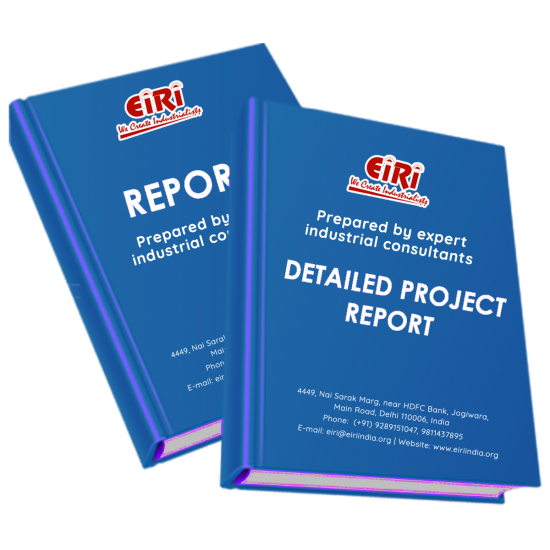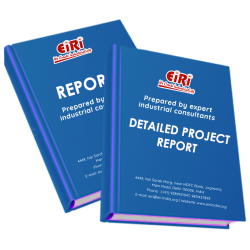Detailed Project Report on active pharma ingredients (api)

- More than 40 years of experience
- Managed by expert industrial consultants
- ISO 9001-2015 Certified
- Registered under MSME, UAM No: DL01E0012000
- 24/5 Research Support
Get your quesries resolved from an industry expert. Ask your queries before report or book purchase. - Custom Research Service
Speak to the our consultant to design an exclusive study to serve your research needs. - Quality Assurance
All reports are prepared by highly qualified consultants & verified by a panel of experts. - Information Security
Your personal & confidential information is safe & secure.
ACTIVE PHARMA INGREDIENTS (API)
[CODE NO.4120]
The Active Pharmaceutical Ingredient Industry is the organ by which active pharmaceutical ingredients are manufactured from raw materials through both chemical and physical means. Depending on the complexity of the molecule required, synthesis of APIs might need multi-step complex chemistry utilizing a range of processing technologies.
The leading manufacturer of APIs today is TAPI (Teva Active Pharmaceutical Ingredients). Specializing in range of API-related fields, TAPI works in areas such as chemical synthesis, fermentation, and chromatography and plant extraction and now has the industry’s largest portfolio of over 300 API products. In 2011 alone they achieved third-party sales of around $750 million.
Dr. Reddy’s is another leading manufacturer with 60 APIs for drug use, diagnostic kits and biotechnology products. Aurobindo and Cipla manufacture 200 APIs each, exporting their products to well over 200 countries worldwide. Other notable manufacturers are Sandoz-Lek-Biochemie, Ranbaxy, Matrix and Sun.
APIs are commonly referred to as ‘bulk pharmaceuticals’ and are in fact usually made in places at quite a distance to where tablets, suspensions and liquids are manufactured. Today, the greatest concentrations of API manufacturers are located around Asia, specifically in India and China. This has led to more and more companies to outsource API manufacturing to such places, which has the main benefit of eliminating the need to invest in highly expensive equipment and infrastructure – which on top of everything can also be complicated to install and maintain. A good example can be found with AstraZeneca, who manufacture 85% of its APIs but are currently in the process of withdrawing from all API production in favor of outsourcing.
Regardless of where the active pharmaceutical ingredient is made, companies must adhere to strict safety and quality standards set by the country where it will be used. So those APIs manufactured in China or India for use in the United States must still be inspected and licensed by the FDA. Similarly, if the API is intended for use in Europe, they would need to meet regulations set by the European Medicines Agency. Regular inspection outside the country of use however can prove difficult with counterfeiting and contamination being high on the list of various agencies’ concerns. For instance, since 2008, the FDA has considerably increased its overseas staff as a way of attempting to eliminate these problems. As a result, countries such as India have gained their foothold in the global market and now have around 75 FDA-approved manufacturing facilities for API synthesis.
Today there are more and more calls for API manufacturers to go green – that is to say, to reduce the waste they produce. Every year, large pharmaceutical manufacturers can produce anywhere from 3000 to 5000 tons of hazardous waste each. If one were to ask any reputable API manufacturer how they would like to improve the process, they’d likely say to make the reactions faster, or to make them cheaper. Ironically the first steps in reducing waste from API synthesis would be to reduce the number of reactions required to produce a given molecule. Therefore though the goal may be different, the means turn out to be the same as fewer reactions mean less solvent to dispose of. Another step in going green is to find different solvents and catalysts that are not only more efficient, but are also better for the environment.
COST ESTIMATION
Plant Capacity 1592 Kg./Day
Land & Building (6000 sq.mt.) Rs. 3.41 Cr
Plant & Machinery Rs. 1.10 Cr
Working Capital for 1 Month Rs. 3.30 Cr
Total Capital Investment Rs. 7.99 Cr
Rate of Return 43%
Break Even Point 45%
- INTRODUCTION
- CHEMISTRY AND MANUFACTURERS OF API
- CHEMISTRY
- MANUFACTURERS
- CARBIDOPA API
- DILTIAZEM
- THERAPEUTIC EFFECTS
- AZITHROMYCIN API
- TREATMENT
- MECHANISM OF ACTION
- SIDE EFFECTS
- ACTIVE PHARMA INGREDIENTS
- MARKET OVERVIEW OF API
- KEY MARKET ANALYSIS
- GLOBAL OVERVIEW OF API
- MARKET OF INDIAN PHARMACEUTICAL INDUSTRY
- COMPOSITION OF INDIAN PHARMA MARKET
- PHARMA EXPORT TO CONTINUE WITNESSING POSITIVE GROWTH
- CHALLENGES FACED BY INDIAN API INDUSTRY
- INDIAN API MANUFACTURERS LOST THEIR COMPETITIVE EDGE
- IN THE MANUFACTURE OF APIS AT THE LOWER END OF THE SPECTRUM AND FERMENTATION TECHNOLOGIES.
- STRICTER IMPLEMENTATION OF POLLUTION CONTROL NORMS
- INTERPRETATION OF DPCO, 2013
- NO TAX INCENTIVES, HIGHER UTILITIES AND BORROWING COST
- LACK OF MEGA BULK DRUG PARKS
- ISSUES FACED BY FERMENTATION INDUSTRY
- RECOMMENDATIONS
- FASTER ENVIRONMENT CLEARANCE
- ENCOURAGE MANUFACTURING BY PROVIDING A FISCAL STIMULUS FOR APIS AND INTERMEDIATES
- FOR FERMENTATION PRODUCTS
- RECOMMENDATIONS – IMMEDIATE
- FINANCIAL INCENTIVES
- RECOMMENDATIONS – LONG TERM
- INDUSTRY–ACADEMIA INITIATIVES
- FACILITATE ALTERNATIVE SOURCES OF IMPORT
- MANUFACTURING PROCESSES OF API
- MANUFACTURING PROCESS OF M-BROMO ANISOLE
- PROCESS FLOW DIAGRAM OF M-BROMO ANISOLE
- MANUFACTURING PROCESS OF ETHYL TRIPHENYL PHOSPHONIUM BROMIDE
- PROCESS FLOW DIAGRAM (BATCH 135 KG)
- MANUFACTURING PROCESS OF CINNAMYLALDEHYDE (BATCH 560 KG)
- PROCESS FLOW DIAGRAM
- MANUFACTURING PROCESS OF M-PHENOXY BENZYL ALCOHOL (BATCH 175 KG)
- PROCESS FLOW DIAGRAM
- MANUFACTURING OF BENZYL ALCOHOL BATCH- 187 KGS
- PROCESS FLOW DIAGRAM
- MANUFACTURING PROCESS OF ALPRAZOLAM
- PROCESS FLOW DIAGRAM
- MANUFACTURING PROCESS OF METHYLPHENIDATE
- PROCESS FLOW DIAGRAM
- ADDRESSES OF RAW MATERIAL SUPPLIERS
- PLANT AND EQUIPMENT SUPPLIERS
APPENDIX – A:
01. PLANT ECONOMICS
02. LAND & BUILDING
03. PLANT AND MACHINERY
04. OTHER FIXED ASSESTS
05. FIXED CAPITAL
06. RAW MATERIAL
07. SALARY AND WAGES
08. UTILITIES AND OVERHEADS
09. TOTAL WORKING CAPITAL
10. TOTAL CAPITAL INVESTMENT
11. COST OF PRODUCTION
12. TURN OVER/ANNUM
13. BREAK EVEN POINT
14. RESOURCES FOR FINANCE
15. INSTALMENT PAYABLE IN 5 YEARS
16. DEPRECIATION CHART FOR 5 YEARS
17. PROFIT ANALYSIS FOR 5 YEARS
18. PROJECTED BALANCE SHEET FOR (5 YEARS)
How to Make Project Report?
Detailed Project Report (DPR) includes Present Market Position and Expected Future Demand, Technology, Manufacturing Process, Investment Opportunity, Plant Economics and Project Financials. comprehensive analysis from industry covering detailed reporting and evaluates the position of the industry by providing insights to the SWOT analysis of the industry.
Each report include Plant Capacity, requirement of Land & Building, Plant & Machinery, Flow Sheet Diagram, Raw Materials detail with suppliers list, Total Capital Investment along with detailed calculation on Rate of Return, Break-Even Analysis and Profitability Analysis. The report also provides a birds eye view of the global industry with details on projected market size and then progresses to evaluate the industry in detail.
We can prepare detailed project report on any industry as per your requirement.
We can also modify the project capacity and project cost as per your requirement. If you are planning to start a business, contact us today.
Detailed Project Report (DPR) gives you access to decisive data such as:
- Market growth drivers
- Factors limiting market growth
- Current market trends
- Market structure
- Key highlights
Overview of key market forces propelling and restraining market growth:
- Up-to-date analyses of market trends and technological improvements
- Pin-point analyses of market competition dynamics to offer you a competitive edge major competitors
- An array of graphics, BEP analysis of major industry segments
- Detailed analyses of industry trends
- A well-defined technological growth with an impact-analysis
- A clear understanding of the competitive landscape and key product segments
Need Customized Project Report?
- Ask for FREE project related details with our consultant/industry expert.
- Share your specific research requirements for customized project report.
- Request for due diligence and consumer centric studies.
- Still haven't found what you're looking for? Speak to our Custom Research Team
About Engineers India Research Institute:
Note: We can also prepare project report on any subject based on your requirement and country. If you need, we can modify the project capacity and project cost based on your requirement.
Our Clients

Our Approach
- Our research reports comprehensively cover Indian markets (can be modified as per your country), present investigation, standpoint and gauge for a time of five years*.
- The market conjectures are produced on the premise of optional research and are cross-accepted through associations with the business players
- We use dependable wellsprings of data and databases. What's more, data from such sources is handled by us and incorporated into the report
Why buy EIRI reports?
- Our project reports include detailed analysis that help to get industry Present Market Position and Expected Future Demand.
- Offer real analysis driving variables for the business and most recent business sector patterns in the business
- This report comprehends the present status of the business by clarifying a complete SWOT examination and investigation of the interest supply circumstance
- Report gives investigation and top to bottom money related correlation of real players/competitors
- The report gives gauges of key parameters which foresees the business execution






















